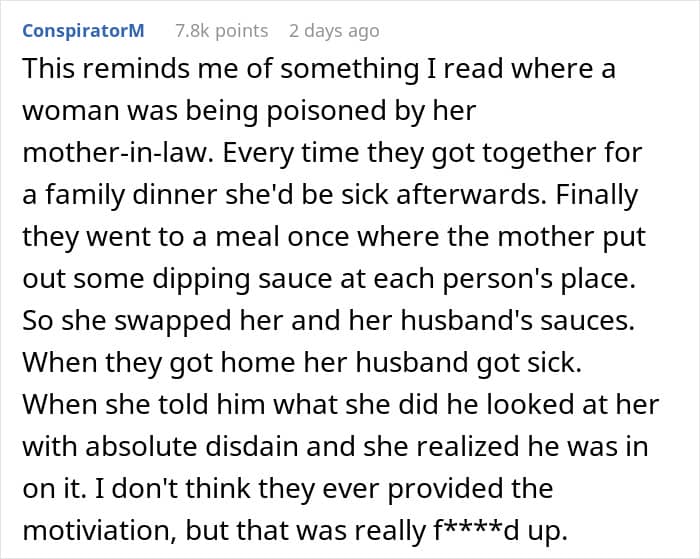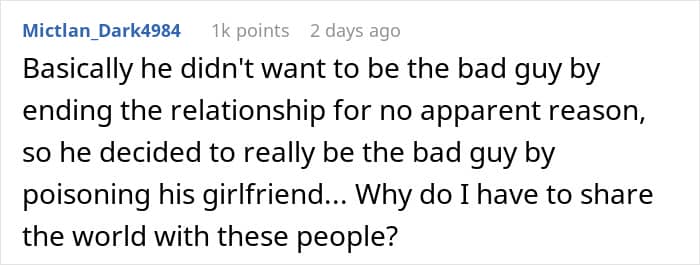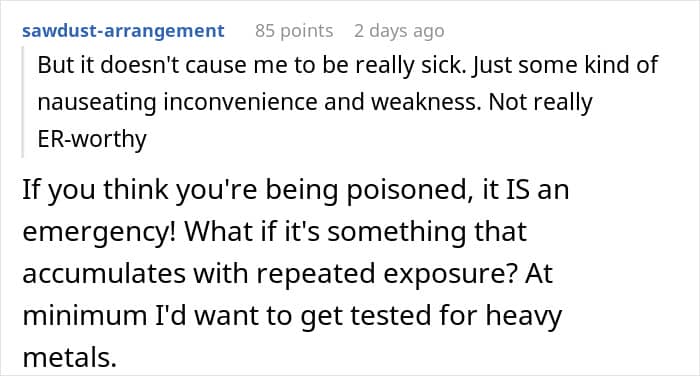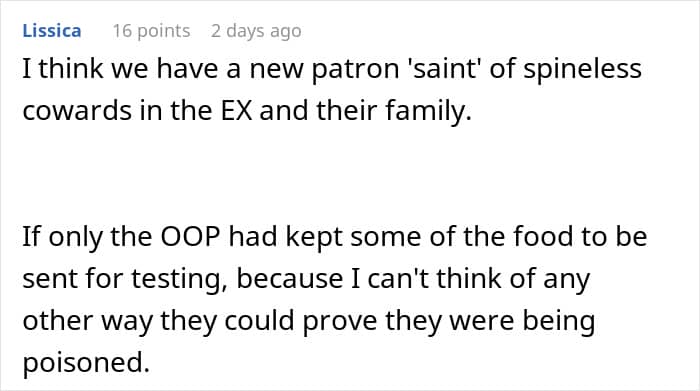The story you are about to read is proof that no two relationships are exactly alike. Shared on Reddit by user Janeohmy, it immediately starts with poisoning accusations directed at her boyfriend’s mom, and as the woman puts in more and more detective work, she eventually realizes that her worst suspicions are coming true.
So, even though the underlying emotions and insecurities are similar to what others may have experienced in their inner circles, the way everything has supposedly unfolded is anything but common.
RELATED:
This woman, who had been enjoying a healthy life, has started to notice that’s she’s been getting sick

Image credits: prostock-studio (not the actual image)
And the evidence pointed to her boyfriend’s food

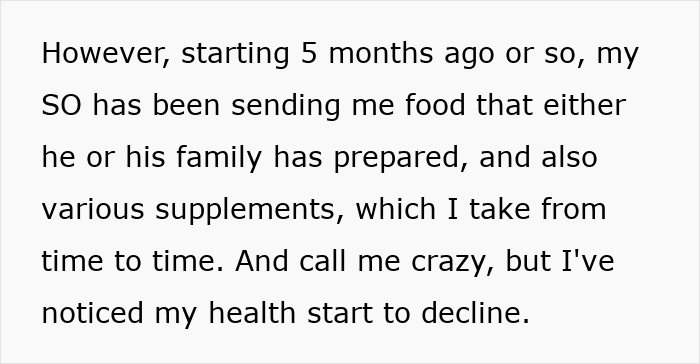
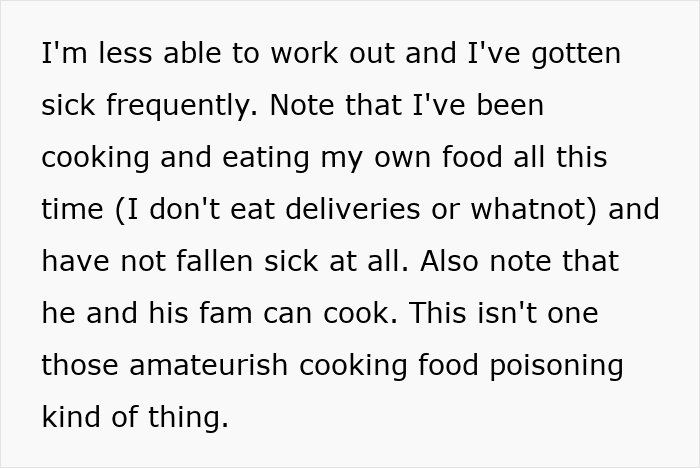


Image credits: New Africa (not the actual image)
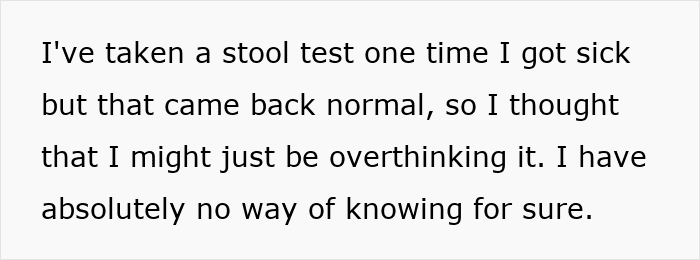
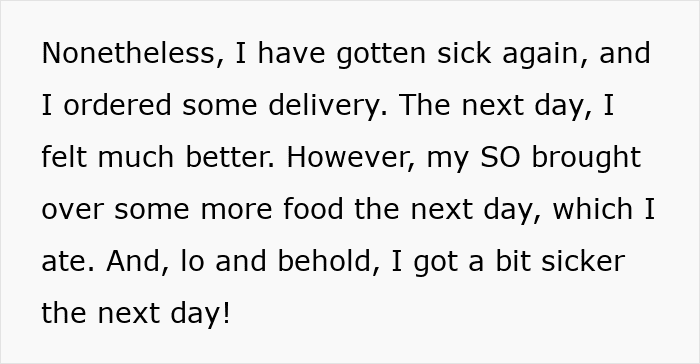

Image credits: freepik (not the actual image)
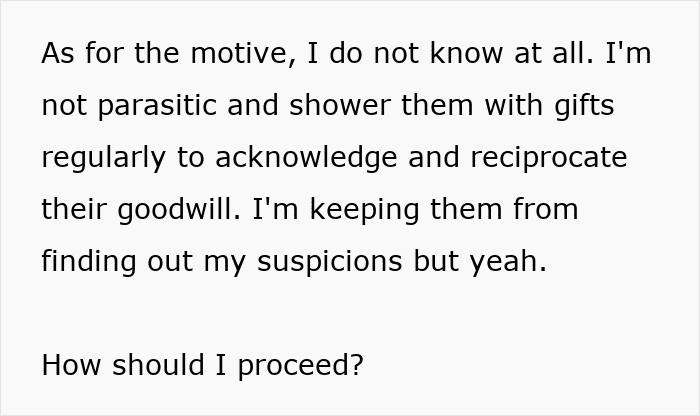
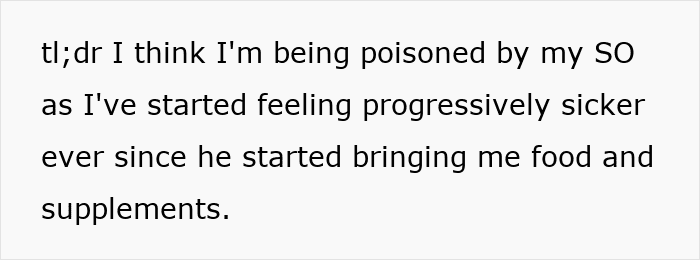
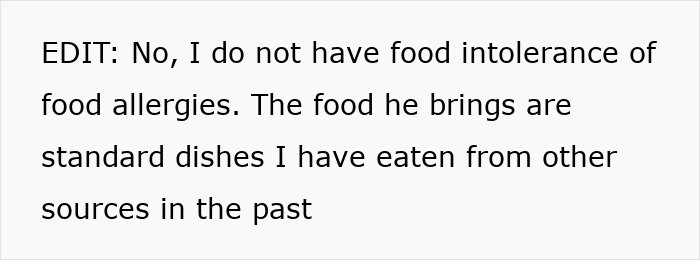
Image credits: janeohmy
Some parents do believe that their children are “extensions” of them and seek to control their behavior as well as their relationships
Licensed marriage and family therapist Sarah Epstein says some parents are certain that they need to “fix” their child’s problems, even when they enter adulthood.
“Parents like this tend to get frustrated when their child fails to follow their advice, does not sufficiently appreciate the resources given (or even squanders those resources), and repeatedly asks them to mediate more disagreements,” she writes.
However, when these parents fix their adult children’s problems, they rob that child of the ability to learn to manage their own struggles and send the message that the parent does not trust their child to be capable of doing so.
“To some extent, parents will naturally see their children as an extension of themselves. But when that goes too far, a parent can respond to their child’s burgeoning independence by pressuring their child to make decisions that align with the parents’ hopes and dreams and reflect well on those parents,” the therapist explains. “The parents may try to do things such as steer their child into a prestigious career, pressure their child to attend (and get married in) a church, or scrutinize their child’s body if it falls outside of conventional beauty standards.”
The adult child, feeling the weight of judgment, may work very hard to meet their parents’ standards, losing themselves in the process. Instead, it would be much healthier if the parents could realize, “My child is an independent person with their own wants, needs, values, and beliefs. It is OK if we want different things.”
A survey by Dating.com revealed that overbearing moms do hinder their adult children’s relationship skills, making them less desirable as a potential match. According to its findings:
67% of respondents reported that they have dated a person whose relationship with their mother negatively impacted their romantic relationshipOf those surveyed, 56% said that their ex-partner’s overbearing mother was the main reason why the romantic relationship ended78% of respondents reported that they would not date a new partner that they consider to be “overly close” to their mother48% of those surveyed reported that their partner’s mother tried to intervene in their relationship at least onceOf the negative “mama’s boy” qualities, daters reported that lack of independence and the inability to make decisions alone were the top most toxic characteristics.62% of respondents noted that their “mama’s boy” ex-partner expected them to handle all the chores like laundry, dishes, etc. without offering a helping hand.Of these respondents, 81% said their partner didn’t know how to use a dishwasher or how to do their laundry.
However, poisoning the food your child gives to their partner? That would be straight up psychotic.

A lot of people who read the woman’s story suggested she go to a doctor
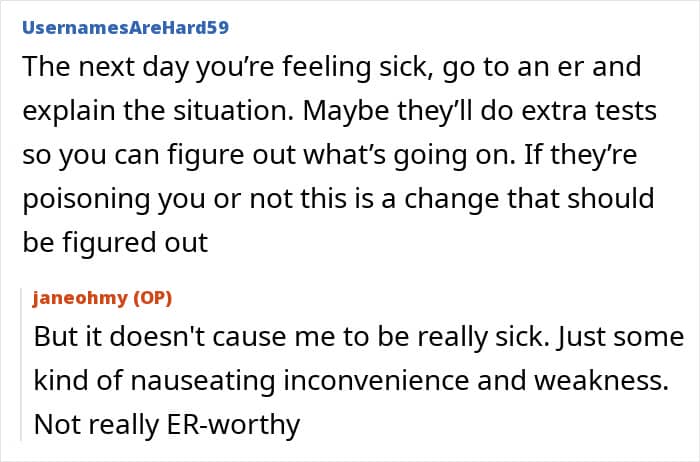



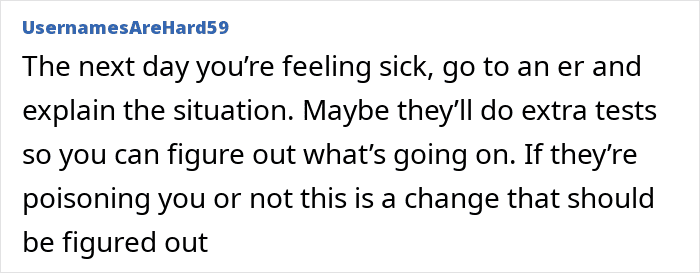

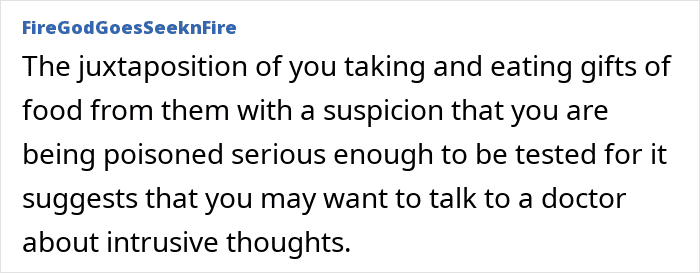
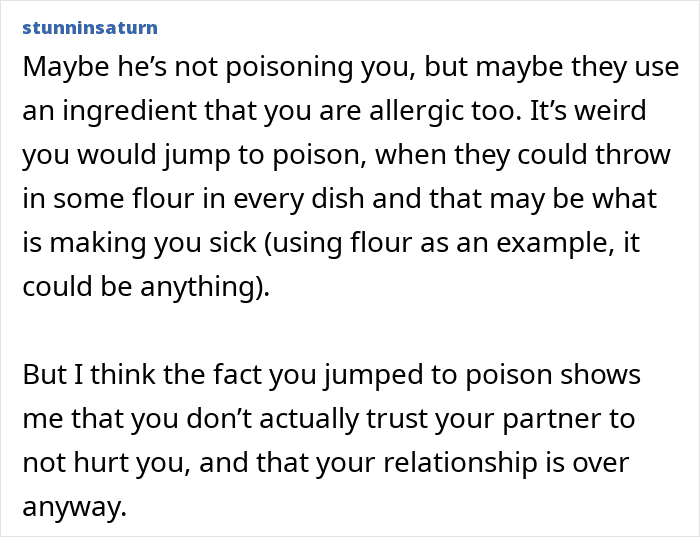
But it was confronting her boyfriend that answered all of her questions
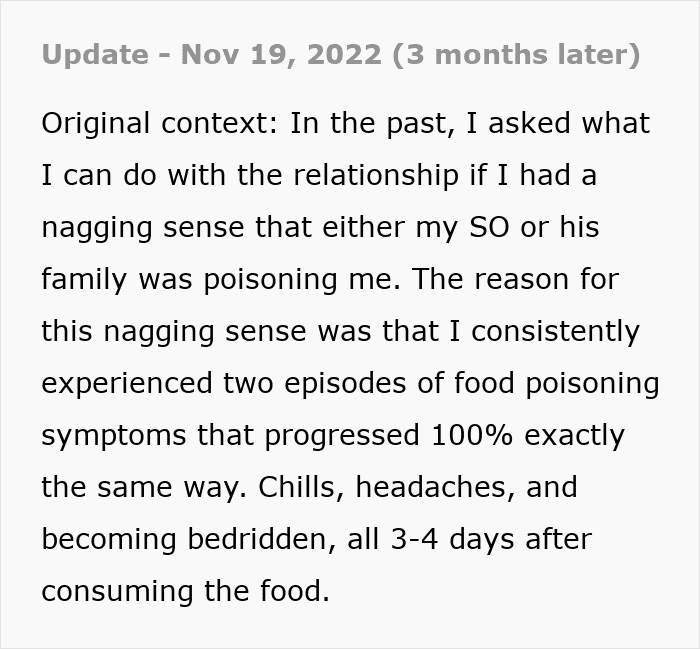
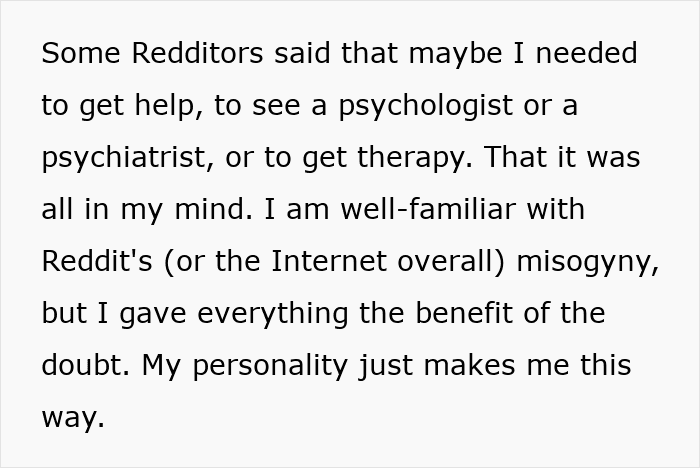

Image credits: freepik (not the actual image)

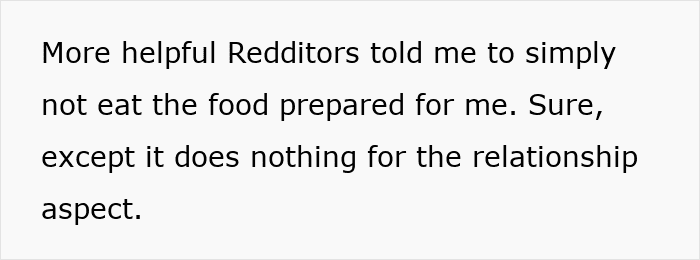
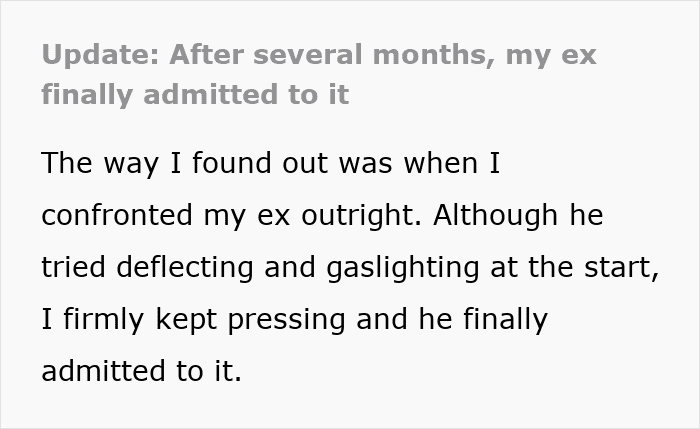
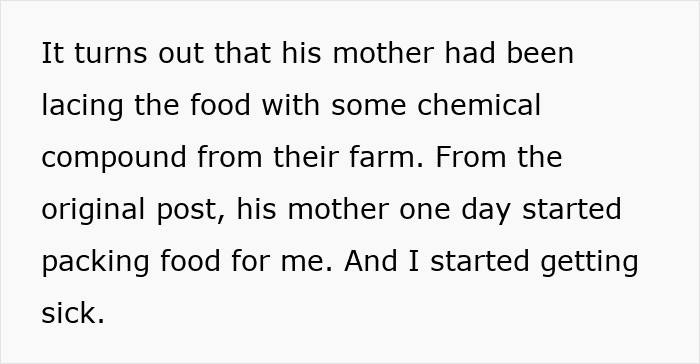

Image credits: gpointstudio (not the actual image)
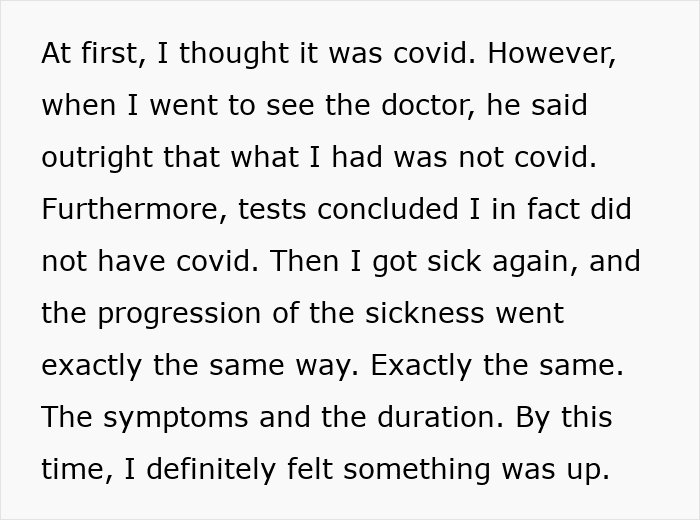
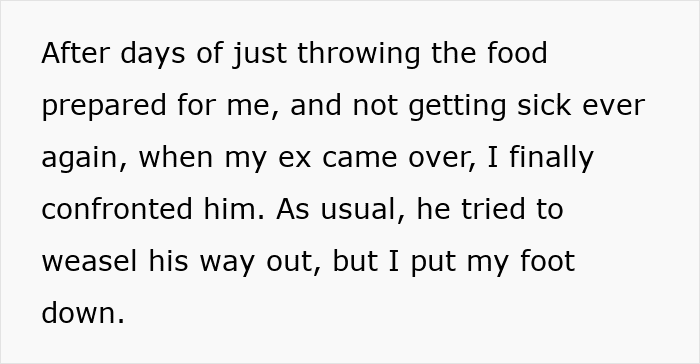



Image credits: stefamerpik (not the actual image)

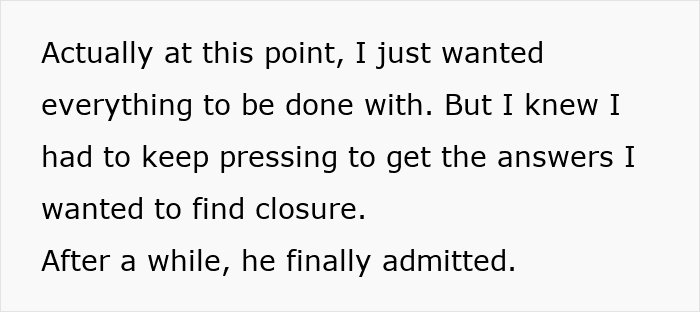
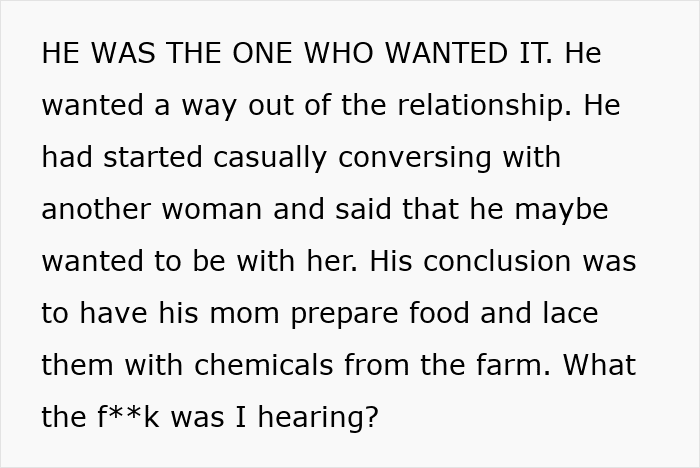

Image credits: amenic181 (not the actual image)
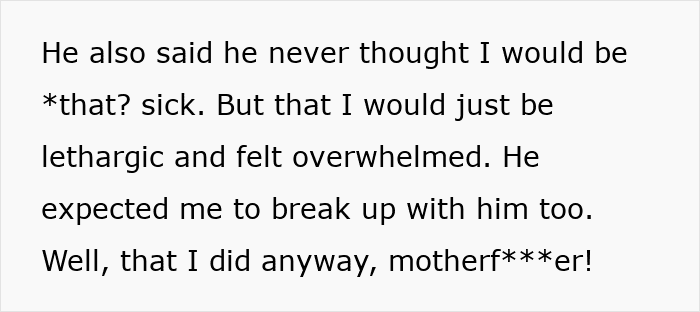
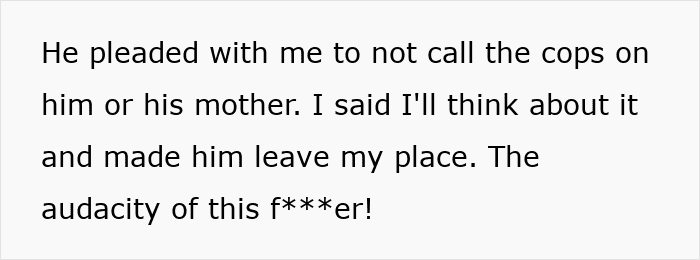

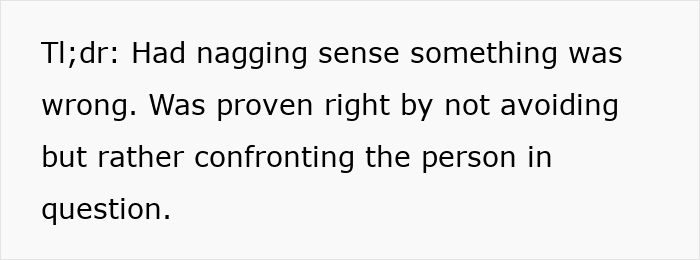
Image credits: janeohmy
What the woman’s boyfriend allegedly did was called self-sabotage
Relationship sabotage is something that happens when we choose our instinct to protect ourselves over our instinct to connect with others, so we can avoid vulnerability and, therefore, trauma.
It can also come from not wanting to repeat what has happened in a previous relationship or what we have seen happen in another relationship.
According to psychologist Raquel Peel, it’s a self-perpetuating cycle: if we assume our relationships won’t last, we break them preemptively – strengthening our belief that our relationships won’t last. The negative feedback loop is reinforced and it gets harder to sustain long-term commitments.
In 2020, Peel published a study in the Journal of Couple and Relationship Therapyand a sample of 696 individuals revealed self-sabotage manifests itself in three distinct ways:
Defensiveness is often enacted as a counter-attack when one is feeling victimized. Someone might feel attacked themselves through their partners’ constant criticism or feel vulnerable in their relationship and afraid of getting hurt. Therefore, to combat these feelings, they try to take control by putting on defenses in advance.Trust difficulty is a learned attitude and behavior. For instance, individuals expect their trust will be broken because it has happened in the past or that is what they understand to be true in relationships, and their expectations can often trigger behaviors that fulfill that prophecy.Lacking relationship skills refers to the fact that some individuals do not know how to be in a relationship or how to work toward healthy engagements. They probably did not have positive role models in their early lives. Practicing relationship skills, such as honest and open communication, and managing expectations can help get a relationship back on track.
Peel’s research also offers five insights useful to counteract your own or your partner’s self-sabotage:
Lean into trust. People with a fear of, or a tendency toward, infidelity struggle with trusting their partners. But if you do not trust your partner to not hurt you, a relationship can turn into a power struggle.Embrace commitment. People often fear commitment because it can mean different things to different people. Defining how much you want to commit to your partner and asking your partner to meet you at a certain threshold can help you avoid the problems of over-commitment or tolerating unacceptable behavior.Focus on communication. Relationships develop cracks when things, especially concerns, are left unsaid. A lack of communication could lead to pretending that everything is fine and defaulting to ‘auto-pilot’ mode when active piloting is needed.Safety. Feeling unsafe is usually a result of unresolved trauma. For the emotionally insecure, being vulnerable with someone else is one of the hardest things to achieve — but it is necessary.Accept that you do not control everything. Stepping into a relationship is a risk you take. Of course, one has to be careful and thoughtful when making such a decision. But, accepting that the possibility of getting hurt (or not) is beyond your control can make can make everything easier and more satisfying.
People were absolutely flabbergasted
